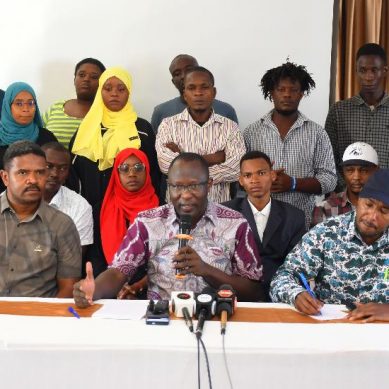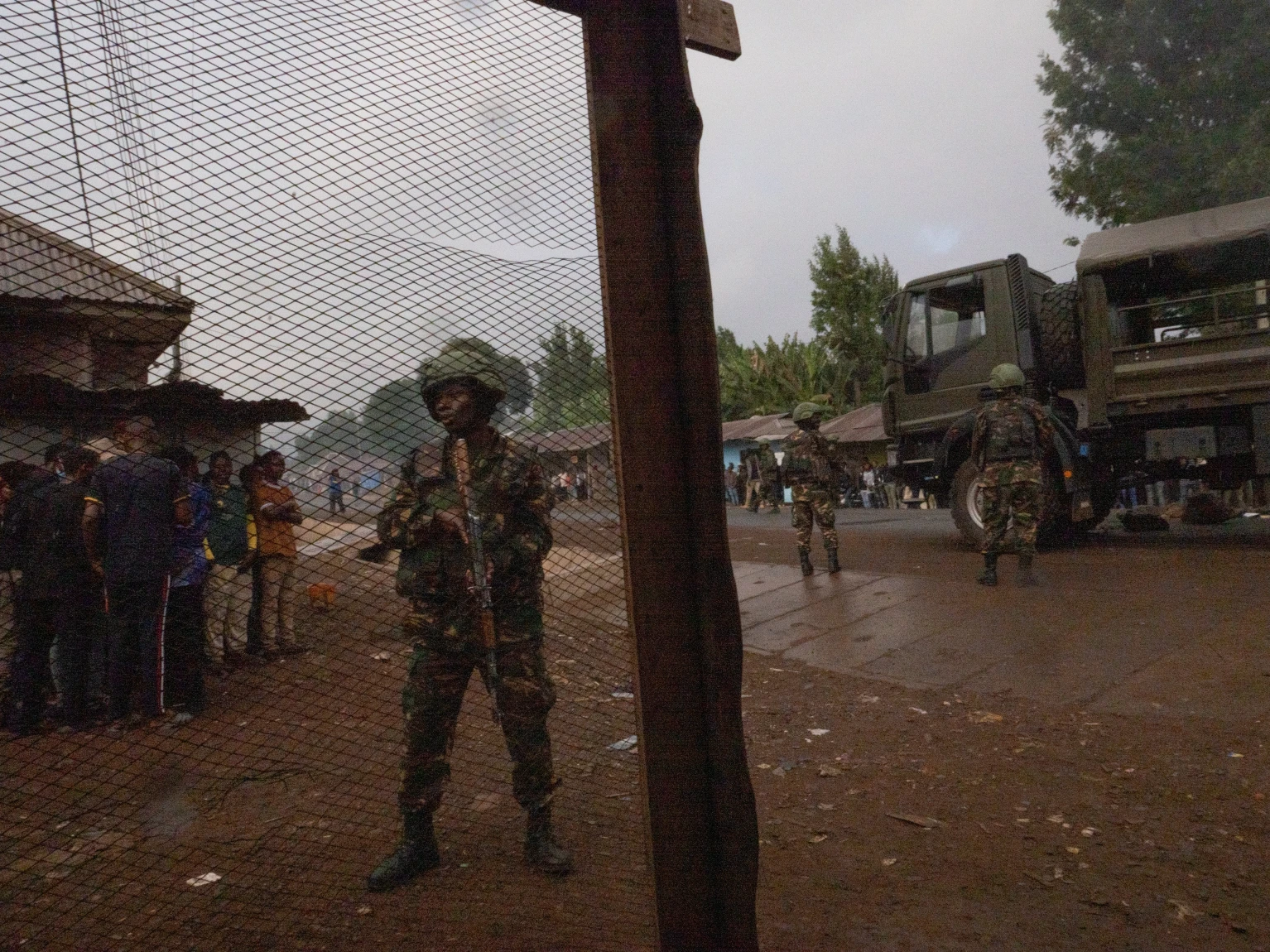
Independent Electoral and Boundaries Commission (IEBC) plans to roll out an enhanced continuous voter registration (ECVR) after the upcoming by-elections to register at least 6.8 million new voters ahead of the 2027 General Election.
However, as the poll agency struggles to bulge the numbers, it accused Gen Zs (youth) of not walking the talk in their push for electoral justice and quality representation in parliament and country assemblies.
The ECVR initiative will come on the back of the ongoing continuous voter registration, which is in its third week, with a paltry 90,020 voters registered against the said 6.8 million target.
IEBC Chair Erastus Ethekon said that, while progress has been made, the registration numbers remained below expectations despite growing enthusiasm among the youth eager to exercise their democratic rights.
Speaking in Mombasa during a youth awareness forum organised by Amnesty International, Ethekon revealed that the coastal city had registered just 3,976 new voters and that the commission against a target of at least 183,000 additional voters in all Mombasa’s six constituencies, raising the county’s total registered voters to 825,000 by 2027.
The commission targets to increase voters in each constituency: Changamwe from 93,561 in 2022 to 120,241; Jomvu from 75,085 to 96,495; Kisauni from 135,276 to 173,851; Nyali from 124,235 to 160,000; Likoni from 94,764 to 121,786; and Mvita from 118,974 to 152,900.
The chairman attributed the low numbers countrywide to limited access, as the exercise currently takes place at the commissions’ constituency offices, locking out many eligible youths from far-flung areas.
“But to solve that problem, once we finish with the by-elections on the November 27 (this month), we are going to launch mass voter registration, which we sometimes call enhanced voter registration. Once that is launched, then we will move our registration centres to the neighbourhoods,” Ethokon explained.
He noted that the move would make the process more accessible and encourage more youth to register. He added that to complement the effort, IEBC would engage the National Registration Bureau to fast-track the issuance of national ID cards to eligible citizens.
Alongside ECVR, IEBC will roll out intensive voter education and urge civil society groups, media, and social media influencers to join in mobilising the youth.
“We need you to come out and support us to reach out to as many young people as possible so that we increase the numbers, but also ensure the free and credible election that we all desire,” he said.
He also called on Kenyans to help rebuild trust in the new IEBC, assuring that the commission has put in place strong safeguards against electoral malpractice.
“The accountability points are there. We have observers. We have our technological system for voter identification. And of course, the result transmission system, which is very robust,” he assured.
Ethekon further cautioned politicians and media against spreading unverified claims that could discourage voter participation. He reminded the media to focus on citizens’ concerns rather than divisive political rhetoric.
“The young people, the bloggers, we need to tell our story. Let not politicians control the narrative because when we let them alone control the narrative, then we will lose faith in everything,” he pointed out.
Comparing the 2022 and 2017 General Elections, Ethekon noted a voter turnout drop from 78.9 per cent to 64 per cent, largely due to youth apathy.
“That is the kind of apathy that sometimes is not helpful to us as a country, because if you have two million people not showing up, then there is a problem. So we need to educate the people on the importance of participating in democratic processes as responsible citizens,” he said.
IEBC Chief Executive Marjan Hussein also expressed concern over the low registration turnout, noting that youth who often demand change must translate their activism into action at the ballot.
“Youth have the power to make any meaningful change in this country and for you to do that, you have to have your voice heard. The only way your voice can be heard is through the ballot, not fighting,” he noted.
Vocal Africa Executive Director Hussein Khalid pledged to work with IEBC in mobilising youth, who would make up about 56 per cent of eligible voters.
“Youth alone can give us a winner, and can decide which way to go, even if everyone else votes. But if the youth decide to come out in numbers, they can be the decision makers,” said Khalid.
“That is why we want to concentrate on the youth and we are urging them to come out because all the noise you’ve been making for the last one or two years, this time with your voter’s card, you can actually make sure that whatever you wanted to see is going to happen through the ballot,” he added.
- A Tell Media / KNA report / By Sadik Hassan





